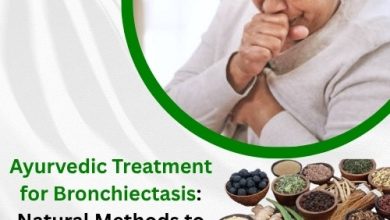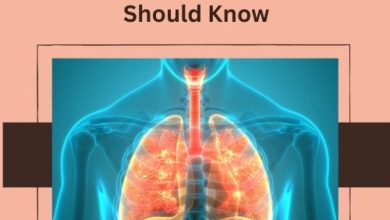What is the Best Diet for Bronchiectasis?

Bronchiectasis is a chronic lung condition that results in the permanent widening and scarring of the airways (bronchi), leading to mucus build-up, repeated infections, and difficulty breathing. While treatment plans typically include antibiotics, physiotherapy, and sometimes surgery, dietary choices play a vital role in supporting lung function, boosting immunity, managing inflammation, and improving overall quality of life.
The best diet for people with bronchiectasis, including foods that support lung health, nutrients that reduce inflammation, and dietary patterns that help patients cope with their symptoms more effectively.
1. Understanding Bronchiectasis and Nutrition
Bronchiectasis weakens the lungs’ natural ability to clear mucus, making it easier for bacteria and viruses to settle in the respiratory system. Over time, this can cause chronic inflammation and frequent lung infections.

Although nutrition cannot cure bronchiectasis, it can:
- Reduce the frequency and severity of infections
- Improve respiratory muscle function
- Manage systemic inflammation
- Prevent malnutrition or weight loss
- Support the immune system
In short, the right diet can make a meaningful difference in the lives of those living with this condition.
Related Article: Best and Worst Foods for Bronchiectasis: Eat Smart to Breathe Easier
2. Nutritional Goals for Bronchiectasis Management
To optimize health with bronchiectasis, your diet should aim to achieve the following:
| Goal | Why It’s Important |
| Control inflammation | Inflammation damages the lungs and worsens symptoms |
| Support immune system | To fight off infections and reduce flare-ups |
| Improve energy and nutrition | Chronic illness may lead to fatigue and muscle wasting |
| Keep airways clear | Proper hydration and certain foods may help thin mucus |
| Prevent malnutrition | Recurrent infections may increase metabolic demands |
Related Article: Natural Treatments for Bronchiectasis That Can Support Your Breathing and Wellbeing
3. Anti-Inflammatory Foods for Lung Support
Chronic inflammation is at the core of bronchiectasis. Eating anti-inflammatory foods can help reduce damage to lung tissue and minimize flare-ups.
Best Anti-Inflammatory Foods:
- Fatty fish: Salmon, sardines, mackerel (rich in omega-3 fatty acids)
- Leafy greens: Spinach, kale, Swiss chard
- Colorful vegetables: Bell peppers, carrots, beets
- Berries: Blueberries, raspberries, blackberries (contain flavonoids)
- Nuts and seeds: Almonds, walnuts, flaxseeds, chia seeds
- Green tea: High in antioxidants like catechins
- Spices: Turmeric and ginger for their natural anti-inflammatory effects
These foods can lower inflammation, boost immunity, and support overall lung function.
4. Essential Nutrients for Bronchiectasis Patients
Several vitamins and minerals are particularly important for lung health and infection prevention:
Related Article: Fuelling Your Lungs: A Nutrition Guide for Bronchiectasis
1. Vitamin C
- Why: Antioxidant that strengthens immunity and repairs lung tissue.
- Sources: Oranges, guava, kiwi, red bell peppers, broccoli.
2. Vitamin D
- Why: Enhances immune response and may reduce lung infections.
- Sources: Sunlight, fortified dairy, eggs, mushrooms, fatty fish.
3. Zinc
- Why: Vital for immune function and wound healing.
- Sources: Pumpkin seeds, chickpeas, lentils, red meat, shellfish.
4. Omega-3 Fatty Acids
- Why: Reduce inflammation in lung tissues.
- Sources: Fish oil, flaxseed oil, chia seeds, walnuts.
5. Magnesium
- Why: Helps relax bronchial muscles and improves breathing.
- Sources: Spinach, avocado, nuts, legumes.
6. Protein
- Why: Prevents muscle wasting and boosts immune system repair.
- Sources: Eggs, poultry, beans, tofu, yogurt, quinoa.
5. Foods to Avoid with Bronchiectasis
While many foods support respiratory health, some can worsen symptoms or trigger inflammation.

Related Article: Foods to Avoid and Foods to Include in a Bronchiectasis Diet
Foods to Limit or Avoid:
| Food | Why Avoid It |
| Processed meats | High in nitrates, promote inflammation |
| Sugary snacks and drinks | Spike insulin, feed bad bacteria |
| Deep-fried foods | Loaded with trans fats and oxidized oils |
| Full-fat dairy | May increase mucus production in some people |
| Refined carbohydrates | Promote systemic inflammation (white bread, pasta) |
| Alcohol | Suppresses immune function, dehydrates |
| Excess salt | Can lead to water retention and blood pressure issues |
If you notice increased coughing or mucus after consuming a particular food, it may be helpful to track and eliminate it from your diet temporarily.
6. Meal Planning Tips for Bronchiectasis Patients
1. Eat Small, Frequent Meals
People with bronchiectasis may feel fatigued or breathless during meals. Smaller portions spaced throughout the day can ease digestion and breathing effort.
2. Focus on High-Energy, Nutrient-Dense Foods
Due to increased energy needs and risk of weight loss, ensure your meals are calorie- and nutrient-rich. Add healthy fats like olive oil or nut butter to meals.
Related Article: 10 Powerful Bronchiectasis Remedies That Will Transform Your Breathing!
3. Prep and Plan Ahead
During flare-ups, cooking may feel exhausting. Batch-cooking and freezing meals can help ensure nutrition even on low-energy days.
4. Monitor Food Sensitivities
Some people with bronchiectasis are sensitive to dairy or gluten, which may increase mucus. An elimination diet under supervision may be helpful.
7. Hydration and Mucus Control
Staying well-hydrated is essential for thinning mucus so it can be more easily expelled from the lungs.
Tips for Staying Hydrated:
- Drink at least 8-10 cups of water per day
- Add herbal teas, such as peppermint or licorice root, to soothe airways
- Avoid excess caffeine, which can dehydrate
- Add fruits with high water content: watermelon, cucumber, oranges
Steam inhalation, saline nasal sprays, and broths can also aid mucus clearance.
8. Supplements That May Help
In addition to a healthy diet, certain supplements may provide additional benefits for people with bronchiectasis. Always consult with your doctor before beginning any Herbal Supplement for Bronchiectasis regimen.
Recommended Supplements:
| Supplement | Potential Benefits |
| Vitamin D3 | Supports immune response, especially in deficiency |
| Omega-3 (Fish Oil) | Reduces inflammation and improves lung health |
| N-Acetylcysteine (NAC) | Helps thin mucus, acts as antioxidant |
| Probiotics | Enhances gut health and immune function |
| Zinc | Prevents and shortens respiratory infections |
| Curcumin | Natural anti-inflammatory derived from turmeric |
Related Article: Managing Bronchiectasis: The Power of Herbal Supplement for Bronchiectasis
9. Special Diets and Considerations
Some patients may benefit from tailored diets based on coexisting conditions or symptoms.
1. Low Mucus Diet
- Reduces foods that may promote excess mucus (dairy, refined sugar)
- Focus on anti-inflammatory and alkaline foods
2. High-Protein Diet
- Supports muscle repair and immune resilience
- Recommended during flare-ups or after weight loss
3. Gluten-Free or Dairy-Free Diet
- For individuals with intolerance that worsens mucus or inflammation
4. Mediterranean Diet
- Naturally rich in anti-inflammatory foods, healthy fats, and antioxidants
- Proven to support lung and cardiovascular health
10. Sample One-Day Meal Plan for Bronchiectasis
Here’s a sample diet plan that focuses on lung health, energy, and inflammation reduction.
Breakfast
- Scrambled eggs with spinach and mushrooms (cooked in olive oil)
- Whole grain toast
- Fresh orange or kiwi slices
- Green tea with ginger
Mid-Morning Snack
- Handful of mixed nuts and seeds (walnuts, almonds, pumpkin seeds)
- Glass of water with lemon
Lunch
- Grilled salmon or tofu
- Quinoa salad with cucumber, cherry tomatoes, parsley, and olive oil dressing
- Steamed broccoli
- Herbal tea (peppermint or licorice root)
Afternoon Snack
- Greek yogurt with blueberries and flaxseed (dairy-free if needed)
Dinner
- Lentil soup with carrots, celery, and turmeric
- Mixed greens salad with avocado, olive oil, and lemon juice
- Steamed zucchini or green beans
- Glass of water or bone broth
Before Bed
- Warm turmeric milk (use plant-based milk if dairy-free)
- Small banana or handful of berries
Final Thoughts
Bronchiectasis is a challenging chronic condition, but the right dietary choices can help reduce symptoms, improve energy, and support overall lung function. A diet rich in anti-inflammatory foods, immune-boosting nutrients, adequate hydration, and high-quality protein can serve as a vital part of a holistic treatment strategy.
While no single “miracle food” will cure bronchiectasis, consistent dietary practices—paired with medical treatment and physiotherapy—can significantly enhance quality of life.
Key Takeaways:
- Focus on whole, nutrient-dense, anti-inflammatory foods.
- Avoid processed, sugary, and mucus-producing items.
- Stay hydrated to support mucus clearance.
- Consider supplements if your healthcare provider recommends them.
- Monitor symptoms and adjust your diet accordingly.
If you or a loved one is dealing with bronchiectasis, work closely with a registered dietitian and pulmonologist to craft a personalized nutrition plan tailored to your health needs and lifestyle.




